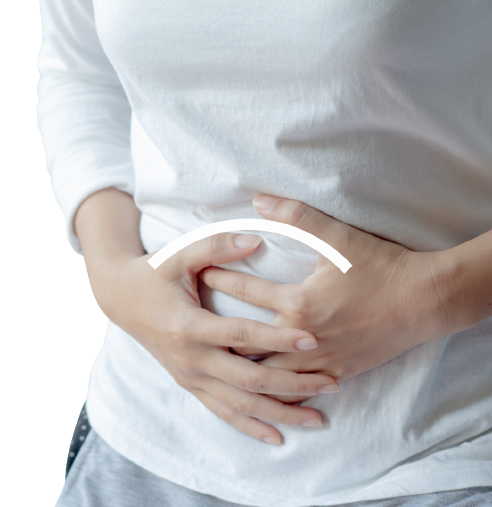Abdominal Cancer Pain
About Abdominal Cancer Pain
Abdominal Cancer is when the cells in the stomach grow out of control. These cells have become cancerous and spread to the surrounding areas such as the inner lining of the stomach. Over time, the cancer cells may develop into a tumour. Stomach cancer is the third leading cause of cancer deaths worldwide and early symptoms are often undetected as symptoms are not obvious. Some of the other names for abdominal cancer include gastric cancer and stomach cancer.
What Causes Abdominal Cancer Pain
There is no explanation for the sudden growth of cancer cells in the stomach, but scientists have discovered that several risk factors have a direct relation to abdominal cancer.
Some possible risk factors for Abdomen and Pelvis Pain are as follows:
- Men over the age of 55
- Over-consumption of food with high salt content
- Obese or overweight
- Previous abdominal surgery
- Smoking or high alcohol consumption

Symptoms Of Abdominal Cancer Pain
Pain
A Message About Abdominal Cancer Pain
There are many causes of persistent abdominal pain. After evaluation of the abdominal pain with either endoscopy or CT abdomen, the result may need a biopsy or surgical confirmation to determine any cancerous growth.
Where possible, the first line of treatment is to remove the tumour in its entirety. In the event of late-stage cancer, where surgical removal is not an option, there are effective pain relief modalities available.
Intra-thecal pain relief will provide continuous analgesia tailored to the patient’s requirements via a pump infused into the spine providing strong and effective pain relief without the side effects of morphine opioids.
Neurolysis of painful nerves supplying the stomach can be blocked off using chemical medications or radiofrequency ablation. Once the painful nerves are blocked off, the tumour no longer causes pain to the patient.
These treatments are effective for all abdominal cancer like liver, pancreas, intestinal and pelvic cancers.
Diagnosing Abdominal Cancer Pain
Abdominal cancer pain produces little to no symptoms at its beginning stage, requiring adequate experience to diagnose the illness. Here at Singapore Paincare, our team of experienced primary care and pain care specialists together with an oncologist will evaluate your condition. This includes a physical exam, questions about your symptoms and an evaluation of your medical history. An X-ray or CT scan may be needed to evaluate or confirm the degree of the pain.
What Treatments Are Available for Abdominal Cancer Pain?
In many instances, non-surgical treatment methods can provide excellent outcomes. At Singapore Paincare, we strive to treat your pain with the least invasive option possible after accurately identifying the cause. Our approach to pain resolution focuses on the removal of pain generators via specialised injection and minimally invasive procedures. Combined with pharmacological treatments, and cognitive and physical rehabilitative therapies, we help patients to improve functions and prevent pain from recurring.
Non-Surgical Treatments for Abdominal Cancer Pain
Neurolysis
Neurolysis is the use of medications to block off the pain and “burn-off” further transmission of pain signals from the abdomen. Applications of transcutaneous radiofrequency ablation are also offered by our doctors, these methods treat the pain by blocking the painful nerve transmission.
Chemotherapy
Pharmacotherapy
Immunotherapy
Radiation Therapy
Palliative Care and Dietary Management
Surgical Treatment for Abdominal Cancer Pain
In the case that all methods are exhausted, surgery may be recommended only if you are a suitable candidate. As surgery always comes with associated risks, complications and downtime, it may not be suitable for everyone. You should carefully weigh the decision before deciding to go under the knife by considering the pros and cons of both non-surgical methods and surgical reconstruction
Endoscopic Resection
Gastrectomy
If all forms of conservative treatments are ineffective, doctors may recommend gastrectomy. Gastrectomy is the removal of the stomach. Currently, there are a few types of gastrectomy.
- Partial gastrectomy is the partial removal of the stomach
- Total gastrectomy is the removal of the entire stomach
The methods of gastrectomy include laparoscopic gastrectomy (the use of cameras and robotic devices).
How Can I Prevent Abdominal Cancer?
There are a few things you can do to lower your risk of stomach cancer:
- Limit your alcohol consumption and avoid smoking
- Avoid pickled and smoked foods, as well as salted meats and fish
- Eat plenty of fruit and vegetables, as well as whole grain foods, such as whole grain breads, cereals, pastas, and rice
- Maintain a healthy weight
Get Your Pain Resolved
Send your enquiries or consult our pain experts today.


